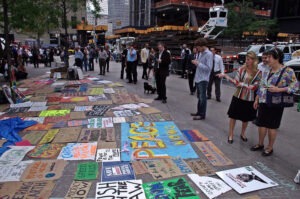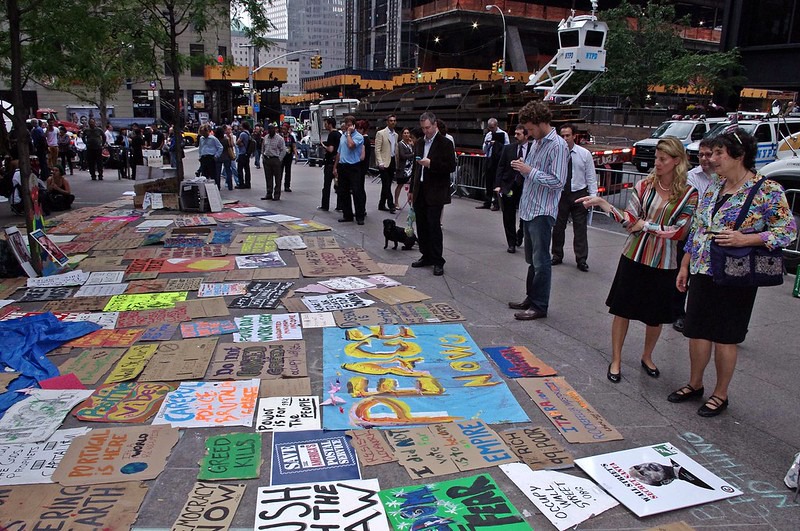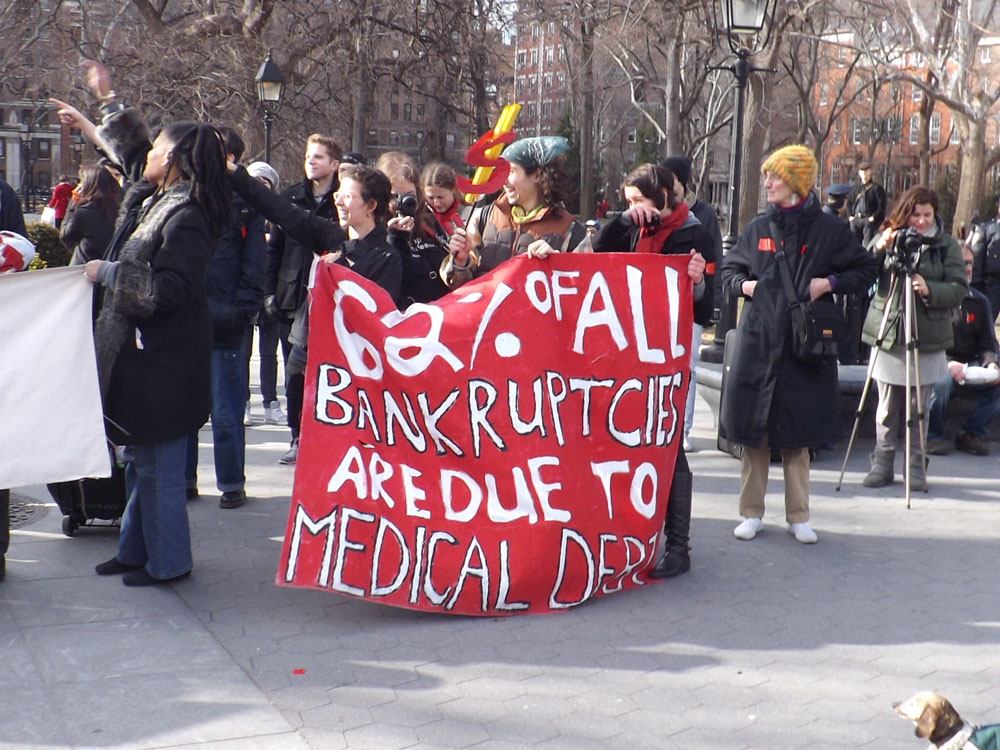December 5, 2011; Source: Boston Herald | In a decision in City of Boston vs. Occupy Boston handed down yesterday in Boston, Suffolk Superior Court Judge Frances A. McIntyre vacated the temporary restraining order that has blocked city officials from evicting Occupy Boston from its location across from the Federal Reserve.
The 25-page decision reads in part, “Occupation speaks of boldness, outrage, and a willingness to take personal risk but it does not carry the plaintiffs’ professed message. Essentially, it is viewed as a hostile act, an assertion of possession against the rights of another. The act of occupation, this court has determined as a matter of law, is not speech. Nor is it immune from criminal prosecution for trespass or other crimes.”
This begs the question: can a group take over and occupy public property in the name of the First Amendment? No controlling opinion has been offered that has considered the seizure of a public forum as a First Amendment exercise. The court grasps the nettle and states that occupation, defined as taking possession by settlement or seizure, is not a symbol or expressive conduct that is constitutionally protected.
Sign up for our free newsletters
Subscribe to NPQ's newsletters to have our top stories delivered directly to your inbox.
By signing up, you agree to our privacy policy and terms of use, and to receive messages from NPQ and our partners.
According to the Boston Globe, prominent Boston civil liberties lawyer Harvey A. Silverglate said the protestors would have a good chance for a successful appeal, calling the judges ruling “wrong” because of its “cursory assumption that the free speech provision of the Massachusetts Constitution is not more protective of speech than the federal First Amendment. “We (in Massachusetts) have the advantage of a free speech guarantee that is older, and more robust, than the First Amendment,” he wrote in an e-mail.
The Occupiers are holding ground, with one protestor stating, “You can’t evict an idea.”—Ruth McCambridge












